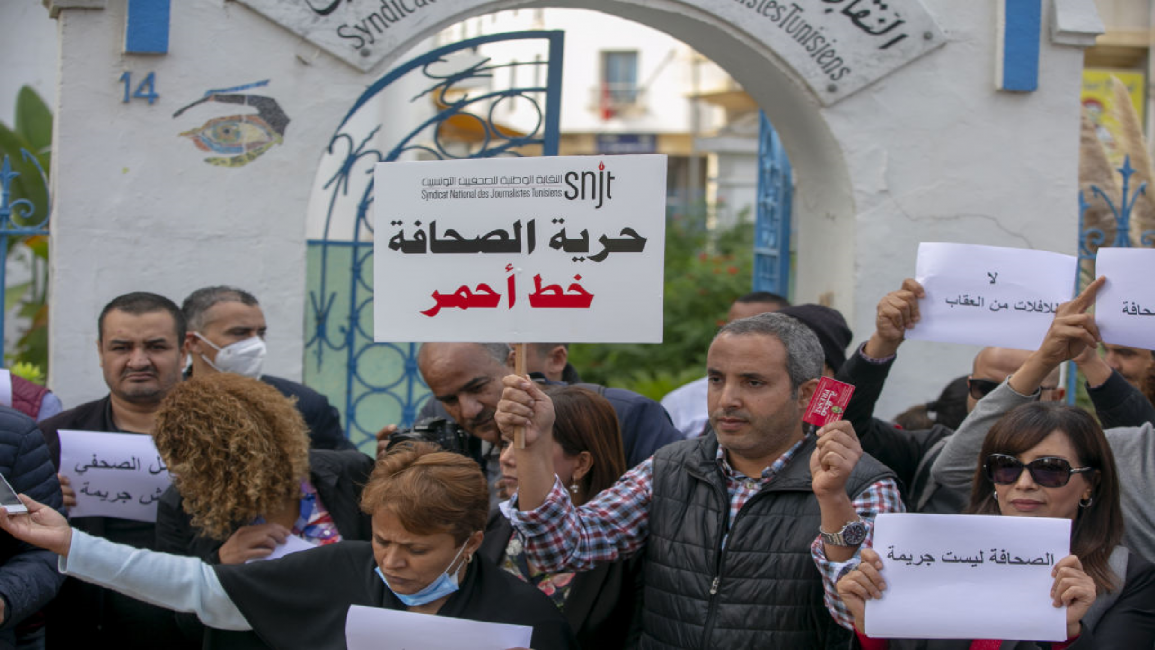Tunisian journalists to go on strike April 2 over risk to press freedoms
Tunisian journalists will go on strike on April 2 to protest at the president's "attempts to control public media", union officials said on Wednesday, amid fears for the right to free speech won in the 2011 revolution.
The main journalists' union has criticised moves to bring state television under direct control of President Kais Saied as well as the detention last week of a journalist for not revealing his sources in a story about Islamist militants.
Saied has imposed one-man rule since suspending parliament and seizing most powers last summer in a move his foes have called a coup, though he has promised to uphold rights and freedoms won in the democratic revolution.
But critics say his actions, which also include replacing the body that guaranteed judicial independence and threatening to stop foreign funding for civil society organisations, show he brooks little tolerance for dissent.
The looming strike adds to broadening opposition to Saied's moves from across Tunisia's political spectrum, though he still appears to retain some popularity amidst disillusionment with coalition governments that were crippled by feuding for years.
Freedom of speech and press was a key gain for Tunisians after 2011 as Tunisia embraced a new democratic system and much of its media has continued to broadcast items unfavourable to Saied, including reports on protests against him.
However, the Journalists Syndicate says such freedom is under serious threat, with more restrictions imposed on journalists reporting in public and what it calls a ban on state television hosting opposition figures in political debates.
The head of state television says there is no such ban but Reuters has seen no opposition figures appear on the channel since Saied assumed executive authority last summer.
"State TV has become a propaganda trumpet for the president," Amira Mohamed, a senior official in the journalists' syndicate, told Reuters.
She said Saied had also refused to implement an agreement struck between the union and a previous administration governing the structure and economic conditions of the media sector.
Human Rights Watch regional deputy director Eric Goldstein wrote this week that Saied had "set about dismantling institutional checks on his authority since his July power grab, and state television is an obvious target".
(Reuters)



